Self Focus

What role does physical exercise play in boosting mental focus ?
Physical exercise is not only beneficial for our physical health, but it also plays a crucial role in enhancing mental focus. Here's how: 1. Release of Endorphins: Regular exercise triggers the release of endorphins, which can help reduce stress and anxiety, leading to improved mental clarity and focus. 2. Increased Blood Flow to the Brain: Engaging in physical activities increases blood flow to the brain, delivering more oxygen and nutrients. This increased blood flow can help improve cognitive function, memory, and overall mental sharpness. 3. Better Sleep Quality: Exercise has been shown to promote better sleep quality and duration. Adequate sleep is essential for maintaining mental focus and concentration throughout the day. 4. Reduction of Stress and Anxiety: Physical activity helps lower levels of the body's stress hormones, such as cortisol. By reducing stress and anxiety, exercise allows individuals to maintain a clearer mind and stay focused on tasks at hand. 5. Enhanced Self-Confidence and Mood: Regular exercise can boost self-esteem and confidence, leading to a positive outlook on life. A positive mindset contributes to better mental focus and productivity. 6. Improved Cognitive Function: Studies have found that regular physical exercise can lead to improvements in various aspects of cognitive function, including attention, memory, and executive functions. These cognitive enhancements directly contribute to increased mental focus and concentration.

What are the key self-assessment techniques for personal growth ?
Self-assessment techniques help identify strengths, weaknesses, and areas for improvement. Key methods include reflecting on past experiences, setting goals and tracking progress, seeking feedback from others, keeping a journal or diary, and practicing mindfulness and self-awareness. These techniques provide different perspectives and help individuals understand their personal growth over time.

How can mindfulness practices be integrated into sports psychology for improved focus and performance ?
Mindfulness practices can be integrated into sports psychology to improve focus and performance for athletes. Benefits include improved concentration, reduced anxiety and stress, enhanced self-awareness, and better recovery. Techniques such as breathing exercises, meditation, visualization, mindful movement, and journaling can be used by athletes to develop greater awareness of their thoughts, feelings, and surroundings. Incorporating these practices into training programs can help athletes stay calm under pressure, maintain focus during competitions, and improve overall performance.
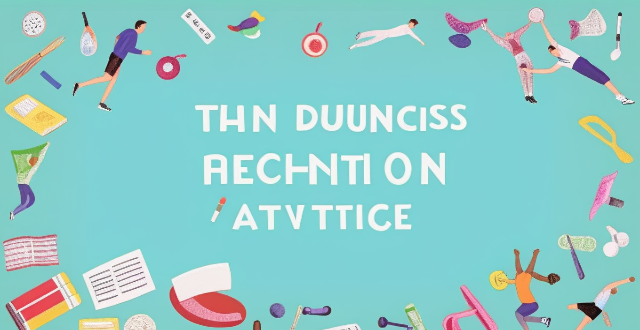
What techniques can help me improve my focus and concentration during sports activities ?
This text discusses various techniques that can help improve focus and concentration during sports activities. These techniques include mindfulness meditation, visualization techniques, goal setting, positive self-talk, and proper nutrition and hydration. The text explains how each technique can be practiced and its benefits in improving performance in sports. By incorporating these techniques into daily routine, athletes can enhance their focus and concentration, leading to better performance and enjoyment of their chosen sport.

In what ways do sports promote self-discipline and self-control ?
Sports play a crucial role in promoting self-discipline and self-control by teaching goal setting, time management, perseverance, impulse control, delayed gratification, and stress management. These skills are essential for success in all areas of life, including personal and professional relationships, academics, and careers. By participating in sports, individuals develop valuable character traits that can lead to long-term success and well-being.

What role does self-awareness play in self-assessment techniques ?
Self-awareness is a crucial component of self-assessment techniques, helping individuals identify strengths and weaknesses, set realistic goals, enhance emotional intelligence, improve self-confidence, and foster personal growth.

What role does self-discipline play in following a study plan ?
Self-discipline is crucial in following a study plan effectively. It involves setting goals, prioritizing tasks, maintaining focus on objectives, and avoiding distractions. By breaking down long-term goals into smaller, manageable tasks and allocating time wisely, self-disciplined individuals can maximize productivity and achieve academic success efficiently. Consistency, overcoming procrastination, and staying motivated are also key factors in sticking to a study plan. Developing strong self-discipline skills can help students reach their full potential.

How does exercise influence self-esteem ?
Exercise has a profound impact on self-esteem, positively influencing confidence, body image, and mental health. Physical benefits include weight management through fat reduction and muscle tone, as well as improved cardiovascular health and immune system function. Mental benefits include stress reduction through endorphin release and mindfulness, and enhanced cognitive function with improved memory and problem-solving abilities. Social benefits come from community building through group activities and support systems, as well as personal achievement through goal setting and feedback. Overall, regular physical activity can significantly enhance self-esteem by promoting physical, mental, and social well-being.
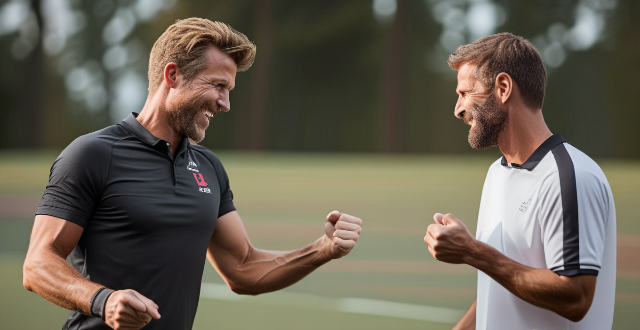
How does mental toughness impact athletic performance at a competitive level ?
In summary, this article explores the impact of mental toughness on athletic performance at a competitive level. It highlights the benefits of mental toughness, including enhanced focus and concentration, improved resilience and coping mechanisms, increased confidence and self-belief, and better decision making under pressure. The article also provides practical tips for developing these essential skills through mindfulness techniques, visualization, positive self-talk, scenario training, and continuous self-improvement. Overall, mental toughness is crucial for athletes to perform at their best and achieve success in their chosen sport.

Can sports be a tool for personal growth and self-discovery ?
Sports offer numerous opportunities for personal growth and self-discovery, including building resilience and determination, developing teamwork and communication skills, enhancing self-discipline, promoting emotional health, discovering passion and purpose, and cultivating mindfulness and focus.

Are there any apps or tools designed to improve focus and productivity ?
In today's fast-paced world, staying focused and productive is crucial for success. With the plethora of distractions around us, it's essential to have tools that can help us stay on track. In this article, we will discuss some apps and tools designed to improve focus and productivity.

How do individual versus team sports impact self-esteem in young people ?
The text discusses the impact of individual versus team sports on self-esteem in young people. It outlines key points such as the focus on personal growth and discipline in individual sports, and the social support and collaboration learned in team sports. The benefits of each type of sport are also highlighted, including increased autonomy and clear feedback from individual sports, and social skills development and resilience from team sports. A comparative analysis is provided, discussing the pros and cons of each type of sport in relation to self-esteem. The conclusion suggests that both types of sports can positively impact self-esteem, but finding the right fit for each individual is crucial.

How can women build their self-confidence in the workplace ?
The text provides a summary of how women can build self-confidence in the workplace through embracing achievements, setting realistic goals, developing new skills, practicing self-care, surrounding themselves with positive influences, speaking up and owning ideas, seeking mentorship, challenging themselves, celebrating uniqueness, and learning from failure.
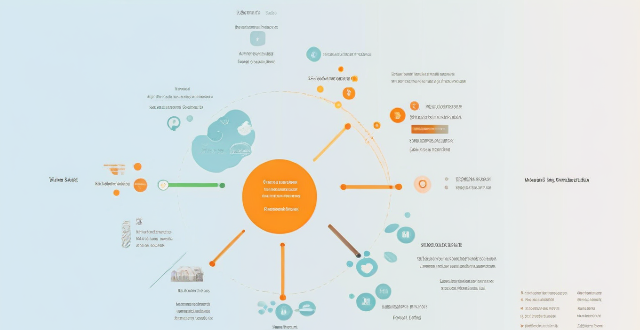
In what areas of my life should I focus when doing a self-assessment ?
When conducting a self-assessment, consider areas like personal development (goals, skills), professional growth (career objectives, performance), health and wellness (physical and mental health), and relationships (interpersonal, social networks). Use this information to create actionable plans and set realistic goals for improvement.

Are there any particular self-defense techniques recommended for female travelers ?
Self-defense techniques are essential for female travelers to stay safe while exploring new places. Learning basic self-defense moves, taking a self-defense class, and practicing situational awareness can help reduce the risk of becoming a victim of crime during travels. It is crucial to trust your instincts and seek help if needed.

How often should I perform a self-assessment to track my progress ?
Self-assessment is essential for monitoring progress in various aspects of life. The frequency of self-assessment depends on individual goals and the specific area of focus. For short-term goals, weekly or bi-weekly assessments are beneficial, while medium-term goals require monthly evaluations. Long-term objectives need less frequent but more comprehensive quarterly or semi-annual reviews. Key elements of effective self-assessment include clarity on goals, measurable criteria, reflection, adjustment, and accountability.

How can self-assessment help me set realistic goals for myself ?
The article discusses the importance of self-assessment in goal setting. By identifying one's strengths and weaknesses, evaluating progress, and setting realistic goals, individuals can increase their chances of success and avoid feeling overwhelmed or discouraged. The article provides tips for each step of the self-assessment process, including breaking larger goals into smaller steps, prioritizing based on importance and urgency, being specific about what is wanted to achieve and why, considering potential obstacles, and developing strategies to overcome them. Ultimately, self-assessment helps individuals gain a better understanding of their capabilities and what steps need to be taken to achieve their goals.
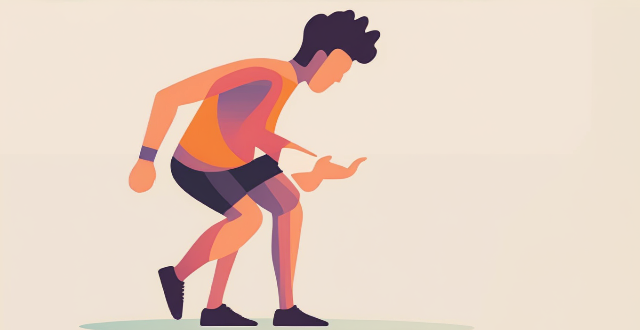
Is there a link between exercise and improved self-esteem ?
This topic summary explores the relationship between exercise and self-esteem, explaining how regular physical activity can boost mental health and improve one's perception of their own worth. It discusses the types of exercise, their benefits on mental health, and evidence from research supporting the positive correlation between exercise and self-esteem. The conclusion emphasizes the importance of incorporating exercise into one's routine to enhance self-esteem.

What are the benefits of guided vs self-guided nature and wildlife tours ?
The article discusses the advantages and disadvantages of guided versus self-guided nature and wildlife tours. Guided tours offer professional guidance, organized experiences, safety and support, and local connections but can be more expensive and less flexible in terms of itinerary and schedule. Self-guided tours, on the other hand, allow for customized itineraries, independence, cost efficiency, and deeper engagement with the environment, but require more planning and may lack the safety net provided by a guide or group. The choice between these two types of tours depends on personal preferences, skill level, goals, and budget.

What are some effective techniques for improving concentration and focus ?
Concentration and focus are crucial skills for achieving goals, whether it's studying, working, or enjoying a hobby. Here are some effective techniques to improve them: minimize distractions by turning off notifications and finding a quiet place; take short breaks every hour or use the Pomodoro technique; practice mindfulness through meditation and deep breathing; set clear goals and prioritize tasks; eliminate multitasking and focus on one task at a time; get enough sleep and create a relaxing bedtime routine; exercise regularly to enhance cognitive function; stay hydrated to avoid fatigue; use visual cues like charts and diagrams; and limit caffeine intake to avoid jittery feelings.

Are there specific breathing exercises that aid in maintaining focus ?
There are several breathing exercises that can aid in maintaining focus, including diaphragmatic breathing, alternate nostril breathing (Nadi Shodhana), box breathing, and roll breathing. These techniques calm the mind, reduce stress, and increase oxygen flow to the brain, enhancing cognitive function and mental clarity. Incorporating these exercises into your daily routine can help improve your ability to maintain focus and concentration.

How can we promote self-care and self-love for women's mental health ?
Promoting self-care and self-love for women's mental health requires a comprehensive approach that includes creating awareness, providing resources, and establishing supportive environments. This involves understanding the importance of mental health, dispelling misconceptions, normalizing conversations, providing accessible information, offering therapeutic support, building community networks, implementing workplace initiatives, advocating for policies, encouraging mindfulness and meditation, promoting healthy lifestyle habits, and fostering self-reflection and growth. By adopting these strategies, we can empower women to take charge of their mental health and lead fulfilling lives.

What is the relationship between self-efficacy and motivation in learning ?
This article explores the relationship between self-efficacy and motivation in learning. It explains how self-efficacy affects motivation, including choice of activities, level of effort and persistence, and emotional response to setbacks. The article also provides suggestions for enhancing self-efficacy to increase motivation, such as providing opportunities for mastery experiences, modeling successful performance, offering positive feedback and encouragement, and helping students set realistic goals.

What methods do sports psychologists use to boost confidence and self-esteem in athletes ?
Sports psychologists employ various methods to boost athletes' confidence and self-esteem, including goal setting, visualization, feedback, cognitive restructuring, stress management, and social support strategies. These techniques help athletes set clear objectives, mentally prepare for competition, receive constructive feedback, challenge negative thoughts, manage stress, and feel supported by their team, ultimately enabling them to perform at their best.

How does self-employment affect my personal income tax calculation ?
Self-employment affects personal income tax calculation by requiring net income reporting, quarterly estimated tax payments, utilizing deductions and credits, filing specialized forms, and paying self-employment tax. Staying organized and informed about tax laws is crucial for effective tax management.

How do psychological factors, such as confidence and self-belief, affect an athlete's ability to perform at their best ?
This topic summary discusses the importance of psychological factors in athletic performance, focusing on confidence and self-belief. Confidence is defined as belief in one's abilities, skills, and judgment, while self-belief is more about internalizing one's capabilities and potential for success. Both are crucial for mental preparation, risk-taking, resilience, motivation, teamwork, goal setting, persistence, visualization, feedback interpretation, and stress management. Strategies for building confidence and self-belief include positive self-talk, mental rehearsal, goal setting, reflection, and having a strong support system. The text emphasizes that these psychological elements are integral to athletic success, enabling athletes to overcome obstacles and reach their full potential.

How does sports participation influence self-esteem in children ?
Sports participation has a positive impact on children's self-esteem by increasing physical fitness, developing skills and mastery, promoting social interaction and teamwork, and encouraging goal setting and achievement.

Is there a connection between physical fitness and self-esteem ?
The article discusses the relationship between physical fitness and self-esteem, stating that engaging in regular exercise and maintaining a fit body can improve one's body image, confidence, mental health, and social interaction. In contrast, poor physical fitness can lower self-esteem by negatively impacting body image, confidence, stress levels, and leading to isolation. The author concludes that maintaining good physical fitness is essential for overall well-being and self-esteem.
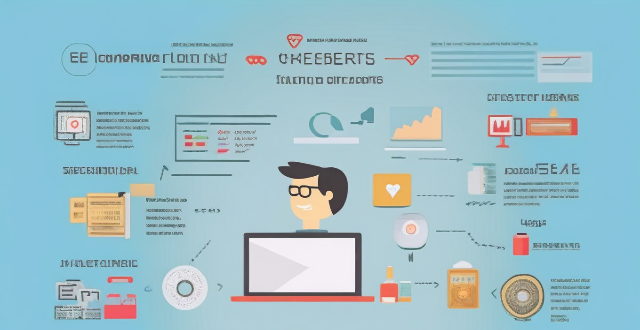
What is the Pomodoro Technique and does it really work for enhancing focus ?
The Pomodoro Technique is a time management method designed to improve focus and productivity. It involves working for 25 minutes followed by a short break, with longer breaks after every four Pomodoros. The technique aims to enhance concentration, manage time effectively, reduce procrastination, and boost overall productivity. However, its effectiveness can vary based on individual adaptability and workflow.

In what ways do sports enhance self-esteem and confidence ?
Participating in sports can significantly boost an individual's self-esteem and confidence. Here are some ways how: 1. Achieving Goals 2. Overcoming Challenges 3. Social Interaction 4. Physical Health 5. Learning New Skills 6. Receiving Feedback 7. Leadership Opportunities 8. Competition Experience 9. Wearing Uniforms 10. Public Performance